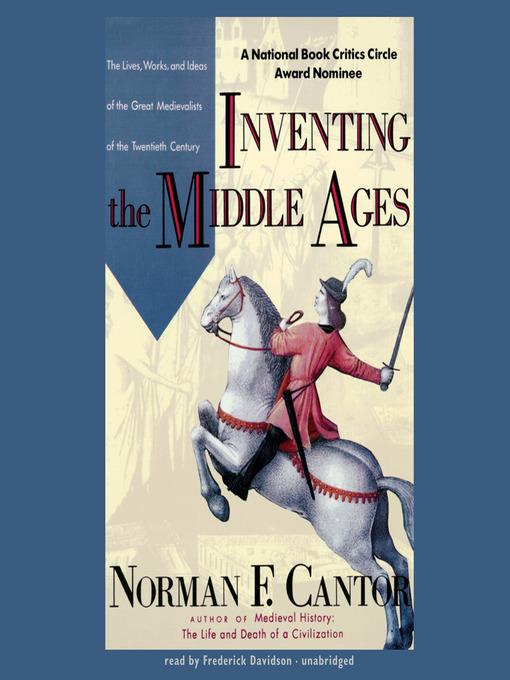
Inventing the Middle Ages
کتاب های مرتبط
- اطلاعات
- نقد و بررسی
- دیدگاه کاربران
نقد و بررسی

Norman Cantor examines the ideas and personalities that have shaped twentieth century scholarly thought about the Middle Ages. The audiobook format offers convenience rather than heightened impact with abstract material such as this. Frederick Davidson has a clear, pleasant voice and handles the author's often convoluted constructions by phrasing them well. Occasionally one wishes there had been time for a retake or to smooth out the pronunciation of a foreign term. But, on balance, this is a highly usable presentation, a good offering where such specialized material is of interest. J.N. (c)AudioFile, Portland, Maine

December 2, 1991
To 19th-century romantics, the Middle Ages were a justification for aesthetic passion and communal feeling. In contrast, the 20th century's picture of the Middle Ages stresses its synthesis of faith and reason, charismatic leadership of saints and heroes, formalist attitude to art and literature, and ideas of divine and human love. These constructs, argues New York University medievalist Cantor, are the product of such influential medievalists as Frederic Maitland, Erwin Panofsky, C. S. Lewis and Richard Southern. His sometimes provocative study combines intimate profiles of 20 medievalists with an assessment of the impact of their ideas on our image of the Middle Ages. Cantor unravels the ``common man's ethos'' in J.R.R. Tolkien's Lord of the Rings and discusses Eileen Power's searing indictment of the Middle Ages' marginalization of women. He invents his own Middle Ages: one that tells us to reject the ``regulatory and welfare state'' and reassert the values of civil society and ``tough love.''

























دیدگاه کاربران